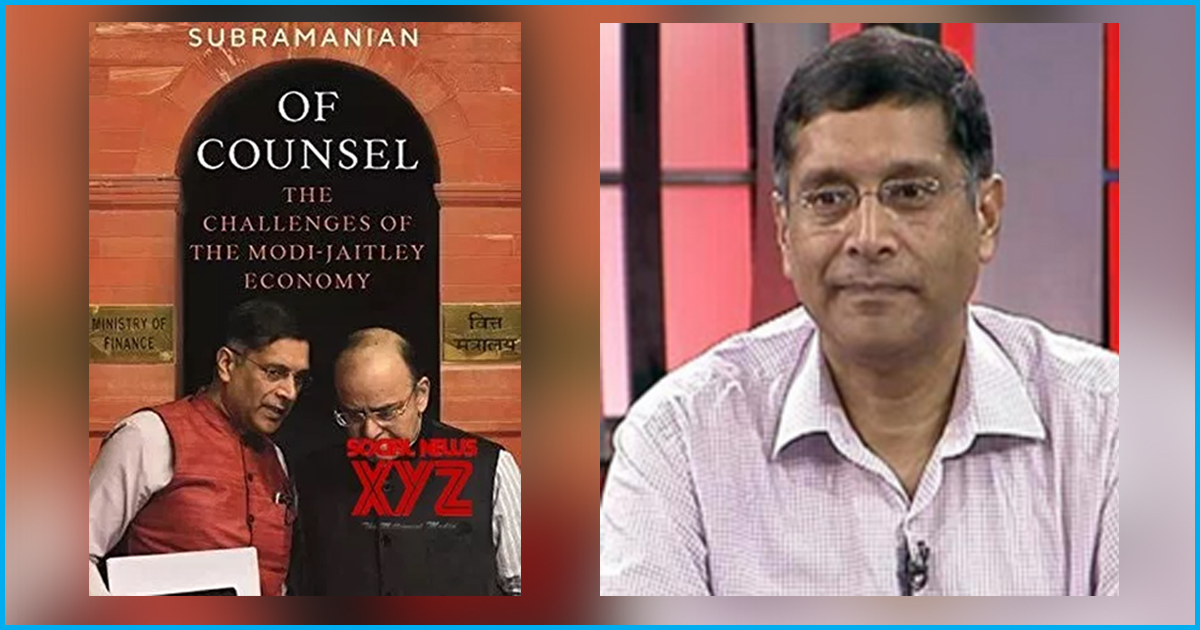
Of Counsel: Not A Gossip-Laden Story Of Modi-Jaitely Politics, But A Retrospective On Their Economic Policies
16 Jan 2019 11:17 AM GMT
When Arvind Subramanian, the former Chief Economic Advisor (CEA) for the Narendra Modi government resigned from his post in June 2018, he said he had a great time working with Finance Minister Arun Jaitley and the job was his dream. His resignation was purely due to personal reason, something that he clarified again and again.
“My departure from this job for entirely personal reasons. It is no secret that we are expecting our first grandchild in the early September. That’s a very compelling reason that takes us back to the old life of that used to lead of researching, writing, teaching and reflecting above all,” he said.
The Oxford-educated economist was selected by Narendra Modi after the post of CEA after it was left vacant by former chief of International Monetary fund (IMF) Raghuram Rajan. Subramanian had earlier worked with Rajan at the IMF.
‘Of Counsel’
After his resignation, Arvind Subramanian, who stood at the midst of economic policymaking during the Modi-Jaitely rule wrote a book. ‘Of Counsel’ is a repository of his writings and reflections since he was appointed Chief Economic Adviser (CEA) to the Government of India in October 2014. It is also a retrospective assessment of key events and policies.
In the book, he has criticized demonetization by calling it a draconian move. Arvind feels privileged to be in the middle of such monumental economic changes and thinks that everyone should get to know the reasons and intricacies behind such decisions. In his book, he wants to leave a legacy of his own accomplishments and failures.
While talking about the relation between the Reserve Bank of India (RBI) and the government, he writes, “Both government and RBI need to make major changes, including allowing for the privatization of some public-sector banks and serious reconsideration of the RBI’s effectiveness as a regulator and supervisor. Without these changes, it will take too long to solve the recent problems, and they are likely to recur.”
While he has called demonetization as a “massive, draconian, monetary shock,” he hinted at the fact that he was not informed about the step before it was taken. In his book, he writes “Demonetization continues to impose short-term costs that are real and substantial, affecting, in particular, the informal, cash-intensive sector. There are also potential long-term gains (especially digitalization, formalization and tax compliance) that need to be monitored on an ongoing basis.”
He also talks in details about GST and how it can emerge as one country, one market, one tax. He says that if Centre does not nip GST related small defects in the bud, it would be difficult for people to accept the tax structure.
Not a gossip monger
Highlighting the challenges of the Modi-Jaitley economy is no mean task, so Arvind declares right at the beginning of the book that the focus is squarely on policy debates. It is no kiss-and-tell memoir, no gossip-laden account of intrigue, backbiting, favour-trading, and double-dealing, no tale of grand heroism and base betrayal.
Essentially it comes down to what is this book about and what ties it together? If there is a unifying theme, it is what Arvind learned about the Indian economy that he did not really know before he took up the job.
 All section
All section













